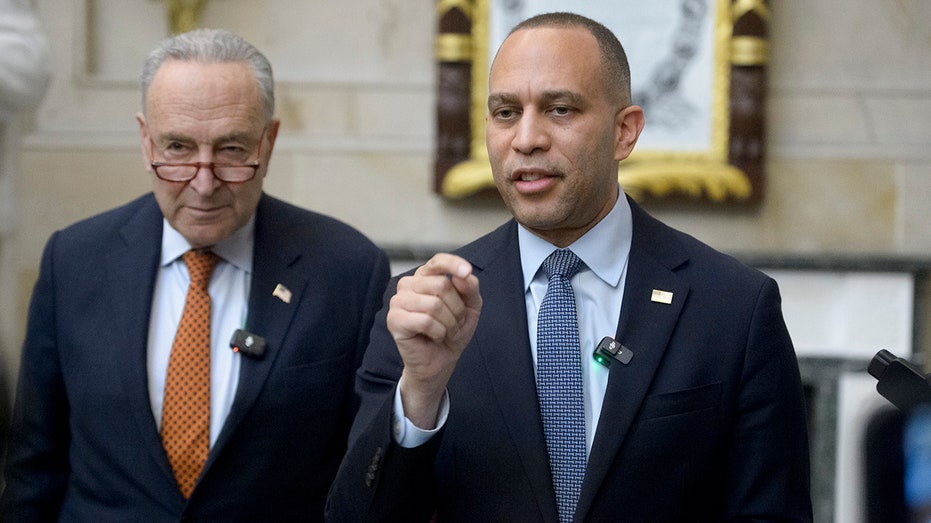Jeffries Sounds Alarm: GOP's Medicaid Cuts Could 'Devastate' Americans

Sarah Johnson
March 1, 2025
Brief
House Democrats, led by Hakeem Jeffries, warn that proposed GOP Medicaid cuts could devastate children, seniors, and families, threatening hospitals and nursing homes nationwide.
House Minority Leader Hakeem Jeffries, D-N.Y., issued a stark warning Friday, stating that proposed actions by House Republicans could severely impact vulnerable populations. According to Jeffries, the Republican budget resolution sets the stage for "the largest Medicaid cut in American history."
"Children will be devastated in the city of New York and beyond. Families will be devastated. Seniors will be devastated. Everyday Americans with disabilities will be devastated," Jeffries emphasized. He also cautioned about potential hospital closures in both urban and rural areas, as well as the shutdown of nursing homes.
Jeffries made it clear that every House Democrat, representing districts from New York City to across the country, stands united against this budget. They pledge to continue opposing it as long as it targets the healthcare of Americans and nutritional assistance for children and families.
The context of Jeffries's remarks is the ongoing search by Republicans in Congress for solutions to an $880 billion budget shortfall. This shortfall needs to be addressed to extend President Donald Trump's tax cuts, with potential changes to Medicaid funding models under consideration, according to Politico.
Currently, states are required to contribute matching funds to receive federal Medicaid dollars. However, Republicans are reportedly exploring the possibility of preventing states from taxing insurers and healthcare providers as a means of raising these funds. Politico reports that this could result in a $612 billion budget gap for states over the next decade.
Republicans argue that states are inflating Medicaid costs by essentially returning taxes to the sources through inflated payment rates. Brian Blase of the Paragon Health Institute stated that this creates a situation where providers receive substantial federal dollars without the state bearing the cost.
In response, the American Hospital Association is urging Congress to reject changes to states' use of provider taxes, which are vital for funding Medicaid programs. They argue that even minor adjustments could have negative consequences for Medicaid beneficiaries and the broader healthcare system.
The AHA emphasizes that states' approaches to financing their share of the program are already subject to federal oversight, including limits on revenue generated through provider taxes. Further restrictions, they warn, could force states to make significant cuts to Medicaid, including reducing eligibility, eliminating benefits, and lowering already low payment rates for providers.
The association suggests that states would likely need to explore alternative sources of revenue, such as increasing income and sales taxes on all residents, if Congress limits their ability to use provider taxes.
Topics
Editor's Comments
It's always a tough balancing act, isn't it? Trying to fund vital services like Medicaid while also managing budget shortfalls. Seems like both sides have valid points, but the potential impact on real people is what really hits home.
Like this article? Share it with your friends!
If you find this article interesting, feel free to share it with your friends!
Thank you for your support! Sharing is the greatest encouragement for us.



